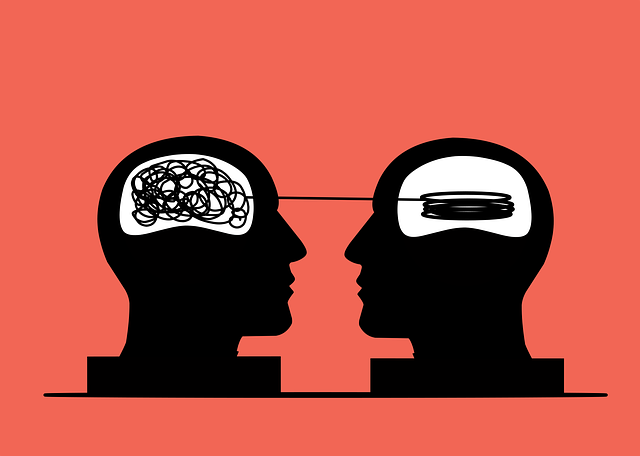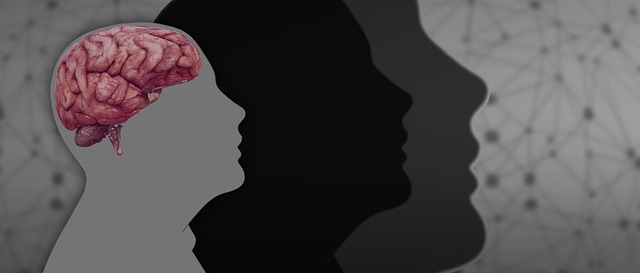Lafayette Gender-Affirming Care Therapy (LGACT) offers a transformative approach to mental health support, focusing on improving diagnosis accuracy for transgender and non-binary individuals. By creating safe, empathetic environments and integrating specialized techniques like conflict resolution, mindfulness meditation, and communication strategies, LGACT enhances understanding of nuanced mental health presentations. This patient-centered care ensures diagnoses are based on comprehensive evaluations tailored to individual experiences and cultural backgrounds, leading to improved outcomes while reducing healthcare provider burnout. Through increased mental health awareness and holistic programs, LGACT revolutionizes mental healthcare for diverse communities.
Mental illness diagnosis accuracy has long been a subject of concern, with current methods often plagued by misidentification and delayed treatment. This article delves into strategies aimed at enhancing diagnostic precision, focusing on the unique contributions of Lafayette Gender-Affirming Care Therapy. We explore innovative techniques, emphasizing the importance of cultural sensitivity and patient-centered care in addressing the challenges. By examining these efforts, we aim to illuminate paths towards more effective mental health assessments.
- Understanding the Current Challenges in Mental Illness Diagnosis
- The Role of Lafayette Gender-Affirming Care Therapy
- Innovative Approaches to Enhance Diagnosis Accuracy
- Ensuring Cultural Sensitivity and Patient-Centered Care
Understanding the Current Challenges in Mental Illness Diagnosis

The diagnosis of mental illness is a complex process that often involves navigating intricate human emotions and behaviors. While significant strides have been made in understanding and treating mental health conditions, current challenges persist. One prominent issue is the lack of personalized approaches, especially when it comes to gender-affirming care, as seen in Lafayette Gender-Affirming Care Therapy. Many traditional diagnostic methods may not adequately capture the nuances of individual experiences, leading to misdiagnosis or delayed treatment. This is particularly concerning for marginalized communities where access to culturally sensitive and empathetic therapy is essential.
Empathy Building Strategies play a pivotal role in overcoming these challenges. Therapists are increasingly recognizing the importance of fostering emotional connections and understanding to create safe spaces for individuals to express their inner struggles. By implementing techniques that enhance self-esteem and improve emotional healing processes, mental health professionals can provide more accurate assessments. Such strategies ensure that the diagnostic journey is as supportive as it is informative, ultimately improving treatment outcomes for all patients.
The Role of Lafayette Gender-Affirming Care Therapy

Lafayette Gender-Affirming Care Therapy (LGACT) plays a pivotal role in enhancing mental illness diagnosis accuracy, particularly for individuals within the transgender and non-binary communities. This specialized therapy approach prioritizes creating safe, supportive spaces where patients can openly discuss their experiences without stigma or judgment. By fostering strong therapist-patient relationships built on empathy and understanding, LGACT facilitates more accurate assessments by encouraging honest self-expression.
Integrated within these sessions are effective communication strategies and self-awareness exercises tailored to address unique challenges faced by transgender individuals. These tools empower patients to articulate their symptoms clearly, helping healthcare providers better comprehend the nuanced presentation of mental health issues specific to this population. As a result, LGACT not only improves diagnosis accuracy but also paves the way for more personalized, effective treatment plans, ultimately contributing to improved outcomes and reduced burnout among healthcare providers implementing burnout prevention strategies in this specialized care context.
Innovative Approaches to Enhance Diagnosis Accuracy

In recent years, efforts to improve mental illness diagnosis accuracy have led to innovative approaches that go beyond traditional methods. One notable example is Lafayette Gender-Affirming Care Therapy, which integrates specialized techniques designed to create a supportive environment for individuals seeking treatment. By focusing on patient-centered care and utilizing evidence-based practices, this therapy aims to enhance the precision of diagnoses.
Additionally, incorporating strategies such as Conflict Resolution Techniques, Mindfulness Meditation, and Communication Strategies has proven effective in refining diagnostic processes. These methods not only foster deeper understanding between patients and therapists but also facilitate more accurate assessments by promoting active listening, emotional awareness, and open dialogue. Such innovative approaches are revolutionizing mental healthcare, ensuring that diagnoses are based on comprehensive evaluations and tailored interventions.
Ensuring Cultural Sensitivity and Patient-Centered Care

In the pursuit of enhancing mental illness diagnosis accuracy, a significant aspect often overlooked is the integration of cultural sensitivity and patient-centered care. This approach is pivotal, especially within diverse communities, where individuals may face unique challenges related to their mental health. For instance, Lafayette Gender-Affirming Care Therapy has pioneered practices that respect and embrace cultural differences, ensuring every patient receives tailored support. By acknowledging the impact of cultural background on mental well-being, healthcare providers can avoid stereotyped assessments and create inclusive environments.
Patient-centered care emphasizes understanding individual experiences and preferences, fostering trust between patients and caregivers. This method encourages open communication, enabling patients to share their unique perspectives on symptoms and perceptions of illness. Incorporating stress management techniques, as part of a holistic Mental Health Education Programs Design, can significantly improve diagnosis accuracy by providing patients with tools to articulate their emotional states more effectively. Moreover, increasing Mental Health Awareness through such patient-centric approaches ensures that individuals from all backgrounds can access accurate diagnoses and receive the appropriate care they need.
Mental illness diagnosis accuracy has long presented a complex challenge, but with innovative approaches like Lafayette Gender-Affirming Care Therapy, significant strides are being made. By prioritizing patient-centered care and cultural sensitivity, we can enhance understanding and improve diagnostic outcomes. These efforts not only ensure more accurate diagnoses but also foster a supportive environment where individuals receive the tailored care they need to thrive.














